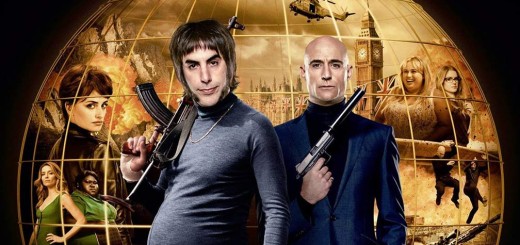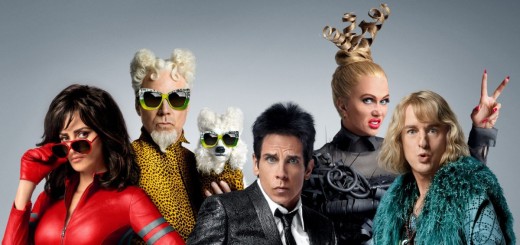THE HERO Review
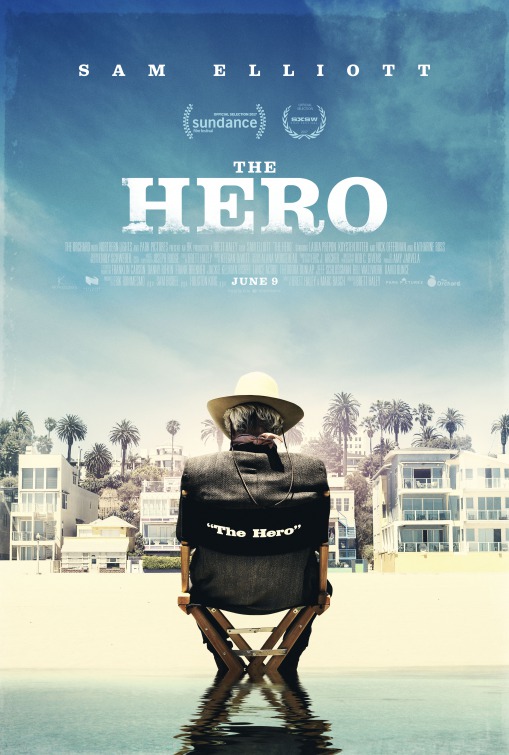
Director: Brett Haley
Genre: Drama
Year: 2017
I had the pleasure of seeing the dramatic and deeply personal film THE HERO at the Arclight Cinema in Hollywood. The film follows the life of late-career actor Lee Haden, played by the iconic Sam Elliott, who, after learning about his imminent death, strives to become a better father and cement his legacy as an artist. Post-screening, there was a short Q&A with Sam Elliott and Nick Offerman, who plays plays his drug dealer, Jeremy. Many questions, both insightful and hilarious were asked, but one stood out because of the personal implications that it had for Elliott.
The question asked if he had any similarities or emotional ties to his character on-screen. He responded with a broad answer, denying that any of his character’s pitfalls, career doubts, or familial complications were true for him. Furthermore, he confidently said that if he stopped acting, he could rest easy with this film as his last before he rode off into the sunset. The film both thematically and narratively stands as a blend of the old and the new, celebrating westerns of the mid-20th century and exploring ideas of celebrity, fame, and family. Elliott delivers a career-defining performance with subdued but nuanced acting, and his gravelly Texan dialect absolutely seduces one’s attention. THE HERO is sad, but only in the way that one might feel after finding a childhood relic, nostalgic for times past, but with a realization that focus on the present is vital.
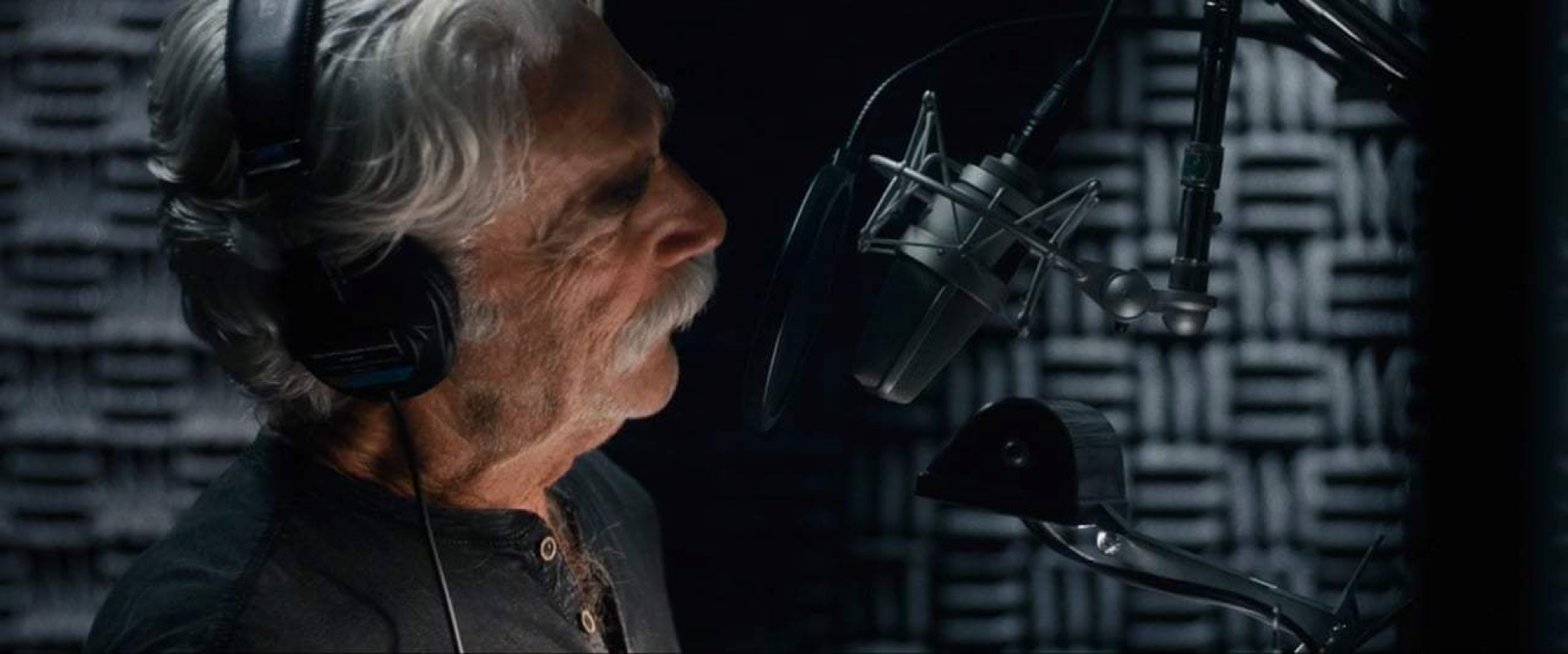
This man can literally sell everything with that voice
Almost immediately, the audience is given a glimpse of the sadness with which Lee lives his life. He’s booked with mindless voice-over sessions, retaining his famous voice, but no longer fit for leading-man roles because of his age. While not entirely clear at first, Lee lacks a deep connection with anybody, including his wife (Katharine Ross) and daughter Lucy (Krysten Ritter). The lost relationship with Lucy haunts Lee throughout the film and provides devastating internal emotional turmoil. There is a specific moment, when reading through lines of a script with Jeremy, that Elliott proves himself more than capable as an actor. Elliott and Lee are both enthralling and widely impressive at moments like these, but sadly for Lee’s acting career, these moments don’t come very often. Jeremy, who remains his only friend, is content to both smoke pot all day with Lee and watch old movies while they reminisce about times past.
By chance, a relationship develops between Lee and a much younger woman named Charlotte, played by Laura Prepon. The age difference is addressed and respectfully handled, further highlighting Lee’s need for intimacy, as connection remains Lee’s biggest hurdle. There could have been more motivation given to Charlotte’s interest in Lee, but even questioning the foundation of the two characters’ relationship brings up the importance of addressing the forgotten needs of older actors and people. Hollywood’s notorious habit of cycling through older actors and celebrities to make room for the new shines clear, but indirectly allows Lee to focus on those around him, and begin to discover the happiness that has eluded him for so long.
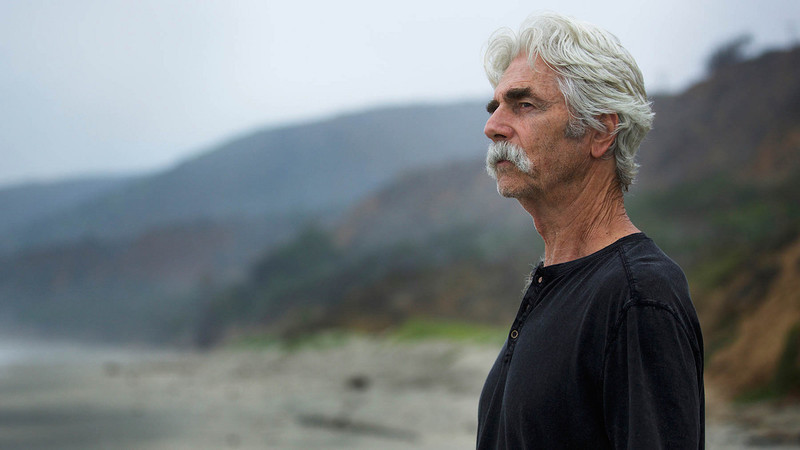
That thousand yard stare, and that bushy chest hair . . .
Possibly the most admirable aspect of the film is in its handling of its characters. With the exception of Lucy, who needs a little more depth and time to develop, the film avoids lazy archetypes. Lee succeeds as a complex protagonist because the film never asks one to feel for him, but rather extends an invitation. He is far from a perfect person whose emotional detachment often brings up individual relevance to situations where one may have felt similarly. Halfway through the film, Jeremy brings up a metaphor of an iceberg, and mentions that people never see all of a person, but instead just what is above the surface. This not only describes Lee’s violently suppressed emotional conflict, but also the intricacies of life as a symbol and a celebrity. Fame, in this sense, belongs at the surface, while strong family relationships and love belong below to support the rest.
Perhaps this is a testament to the direction, writing, and acting of the film, but Lee often seems so authentic that one can’t help but wonder which realm of real experiences Elliott might’ve drawn upon. Further along in the Q&A, Elliott mentioned that (among others) he lives by a personal golden rule of acting: “if it’s not on the page, it’s not on the stage.” Despite the blurred lines between Lee and Elliott and his insistence that their lives are very different, there is no question that THE HERO is a respectful and dignified ode to Elliott’s career. After seeing the latest summer Blockbuster, if you hear someone say something like, “they just don’t make films like they used to,” have them watch THE HERO and smile. Because they do; it’s just that like Lee, nobody is talking about them.
Verdict: Recommend


